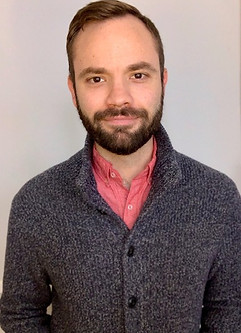
Education + Licensure
DePaul University
Master's of Education (M.Ed) in Community Counseling
2014
State of Illinois
Licensed Clinical Professional Counselor
License #: 180012387
Paul Konz
(he/him/his)
Licensed Clinical Professional Counselor
My counseling training began in 2013 at a Chicago-based addiction treatment center, where I worked with those suffering from co-occurring disorders (substance use + other mental illness), and received specialized training in the diverse mental health challenges within sexual and gender minority populations. I continued to work in residential treatment programs, from detox to 28-day, followed by my work with a community social service provider, providing counseling and support to folks living with and affected by HIV. During this time I trained in harm reduction approaches to one's health and well being, a framework which promotes "any positive change." This training continues to play a vital role in my work and in my values.
Prior to counseling work, I attended journalism school in Austin, Texas, after which I worked for a few years in marketing and public relations. I’ve always been interested in the backstories. Eventually I found that sifting through our own stories can be transformative. And in an increasingly loud world where it feels like there isn't always a space to do some solid sifting, I wanted to create one. A space for humans to breathe, be heard, and experience the growth that inevitably follows. This led to the launch of Mindful Movement Counseling in 2020.
I believe (and research shows) that so much of what makes therapy valuable is the relationship we'll build together. Learn more about my approach below.
Areas of Practice
-
anxiety and mood regulation
-
understanding and moving through personal/intergenerational trauma
-
substance use and behavioral addiction
-
working with LGBTQIA populations
-
understanding stigma and shame
-
living and aging with HIV
-
grief and loss
-
exploration of gender and sexuality
My Therapeutic Approach
Mindful Movement is built from the idea that slowing down in both mind and body spurs growth. My goal is to aid you in understanding the ways all the parts of you relate to one another, and this begins with getting to know those parts. My approach is guided by the belief that meaningful change occurs when the relationship between therapist and client is based on authenticity and collaboration, and when you are heard and trusted as the expert on your story. Research shows that the quality of the therapeutic relationship itself is a critical marker of outcomes and growth.
I see most conflict and struggle rooted in unconscious places of fear and unmet needs. Our work together allows us to safely explore these places a little deeper, and in doing so, gain a richer understanding of who you are, what you value and what you need. In this process, we can make contact with our core self, and tap into our natural abilities to problem solve and find balance. I don't believe therapy is for telling you what to do; I believe it is to help you reconnect to the parts of yourself which already know, and provide support for the parts that still need some.
I am an advocate and practitioner of harm reduction and mindful self-compassion as tools in this process. Harm reduction honors the unique goals and needs of each individual, meeting you where you're at in the shared goal of reducing negative consequences in your life. In addition to being an effective mode of treatment for addiction, harm reduction is a commitment to social justice and a way of understanding people and behaviors, rather than condemning them.
Self-compassion, practiced in a variety of ways, can be one of the most radical and most effective tools for self-care today, and has been widely proven to boost emotional resilience. Based upon the ideas of mindfulness, common humanity and authentic self-soothing, this practice can help you become your greatest nurturer and advocate.